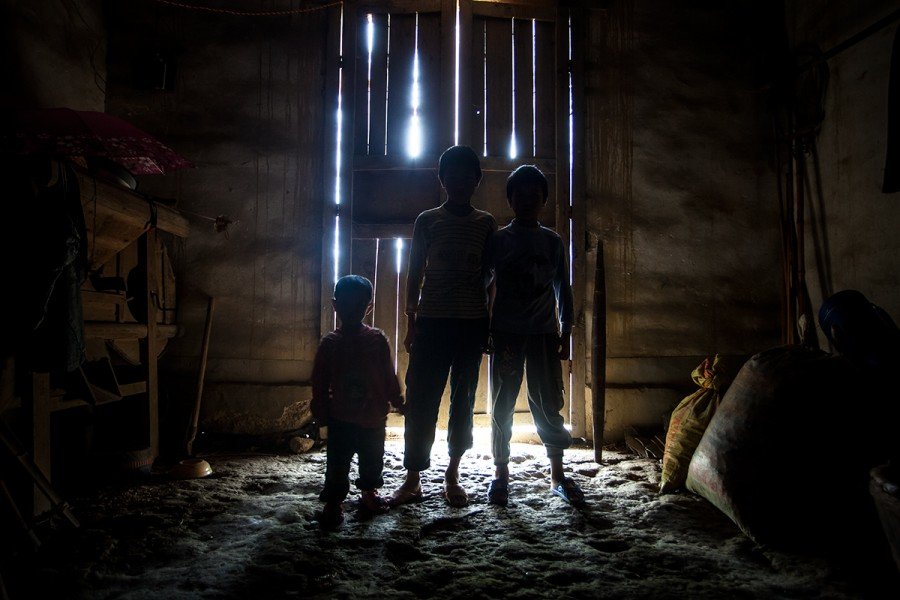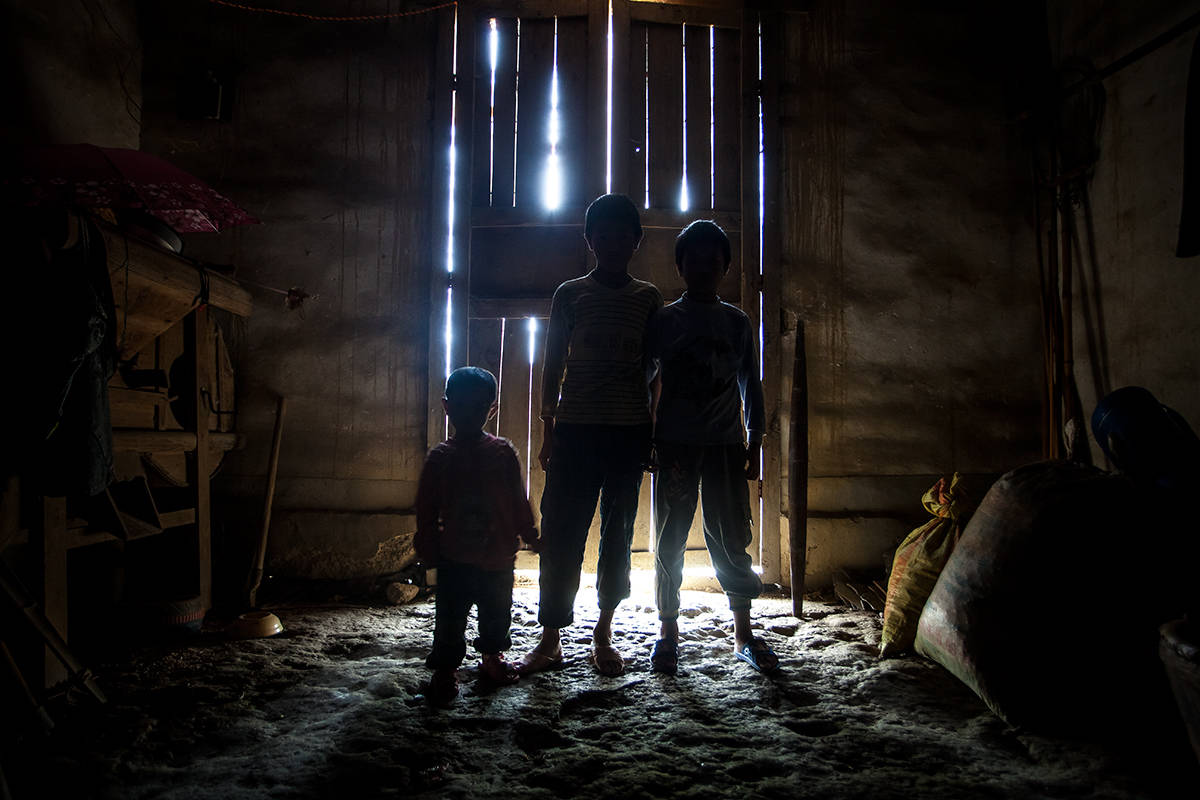Rollover images for slideshow controls
Left Behind
The first time I photographed at the Huang family’s home was after their patriarch had died suddenly in the night. The entire village assembled to pay their respects at the family wake. As I shot, I was overcome with the sounds of firecrackers, traditional Chinese instruments and the bereft cries of the family against the backdrop of a night lit by a full moon and blurred by the smoke of burned offerings.
The Huang family’s home sits on top of a mountain in the highest village in the Jiangxi Province of China. Trash litters the front yard and the walls of the family home crumble quietly under the weight of the slated roof that occasionally shakes loose and falls in pieces to the ground. But the family has the most beautiful view of the surrounding mountains and the village of YingPanXu below. From the Huang’s home you can see storms rolling in, the sunrise approaching and lighting up the earth, and, at night, the vast Milky Way above. It was here that I felt compelled to keep returning to document life, death and the day-to-day toils of the Huang family and ask a simple question; what does it mean to be left behind when the effects of industrialization and globalization separates your family?
China’s rapid industrialization has induced many young people to move to the city for greater opportunities, or as migrant workers to support their families back home. This phenomenon has created a generation of elders and very young children who remain behind in rural Chinese villages. The children are raised by their grandparents and see their parents infrequently while the elder generation shoulders burdens of child-rearing and household maintenance that would previously have been the responsibility of their grown offspring.
Photographs & Text: Clary Estes
Website: www.claryestes.com

Share

